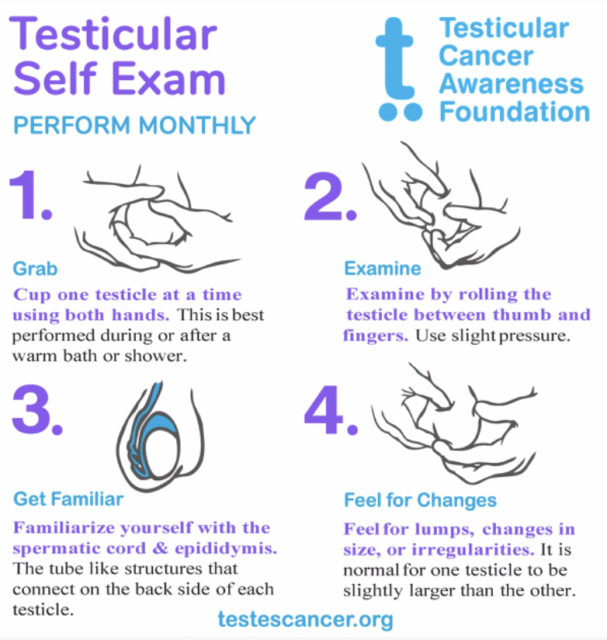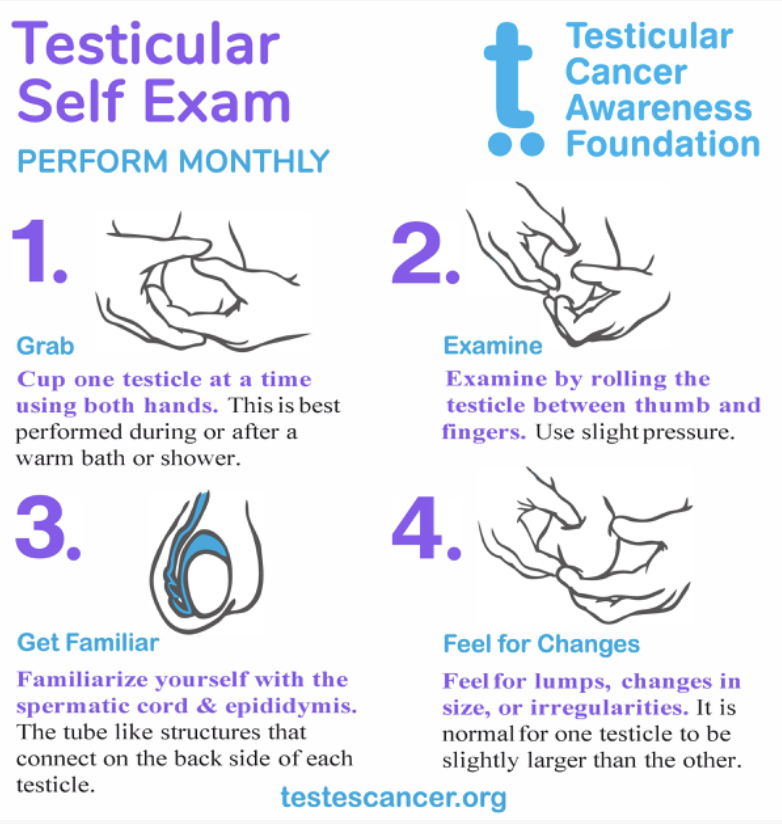|
Getting your Trinity Audio player ready... |
April is Testicular Cancer Awareness Month, along with multiple myeloma and oesophageal cancer. Time to talk about the most common cancer in men aged 15-44.
As with other cancers, early detection is key, often eliminating the need for additional surgeries, chemotherapy, or radiation, not to mention the financial and emotional cost for patients and their families.
Symptoms
Testicular cancer often shows up as a painless lump, swelling, or change in the size or feel of a testicle. You might also notice a dull ache, a heavy feeling in the scrotum, or breast tenderness. Early signs are usually painless (but not always), so regular monthly self-exams are key.
Risk Factors
Testicular cancer is the most common cancer in men ages 15-44, though it can strike at any age. The average age at diagnosis is just 33. 9,720 new cases and 600 deaths are expected in the U.S. alone in 2025, despite being highly curable—over 95% if caught early. 1 in 250 males will be diagnosed with testicular cancer in their lifetime.
Testicular Self-exams
Self-examination of both testes is important for early detection of testicular cancer. It’s best carried out on a monthly basis, and it’s as easy as this:
- Cup – Cup one testicle at a time in both hands; ideally during or after a warm bath or shower when the scrotum’s skin is relaxed.
- Examine – Examine by rolling the testicle between thumb and fingers; use slight pressure.
- Familiarise – Familiarise yourself with the spermatic cord & epididymis (tube-like structures that connect at the rear of each testicle).
- Feel – Feel for lumps, change in size or irregularities; don’t panic, it’s normal for one testes to be slightly larger than the other.

Treatments
- Surgery –Surgery to remove the testicle (orchidectomy) is the main treatment for testicular cancer. An artificial testicle may then be put in.
- Chemotherapy
- Radiotherapy
Some treatments for testicular cancer, such as chemotherapy, can affect fertility and therefore the ability to have children. Collecting and storing the patient’s sperm (sperm banking- means their sperm can later be used in fertility treatment. Having a testicle removed does not usually affect fertility.
Information provided by the Testicular Cancer Awareness Foundation and the NHS




